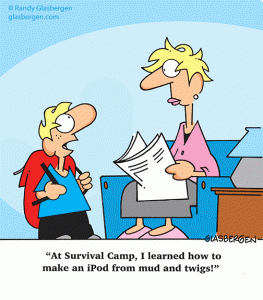 Getting homesick at camp can ruin what would otherwise be a great time for your child.
Getting homesick at camp can ruin what would otherwise be a great time for your child.
The summer camp experience has been celebrated in movies, songs, and many of our own childhood memories. There is something special about sleeping away from your parents, learning new skills, and cooking outdoors, while sitting under the stars and singing around a campfire with new friends.
Sending children to overnight camp without their parents, first began in the 1880s. However, it wasn’t until the twentieth century, that summer camp became hugely popular. At this point it was supported by organizations with educational, political, or religious agendas. The first camps in America such as the YMCA, Camp Fire Girls, and the Girl Scouts and Boy Scouts are still familiar today and the attraction of camps has expanded to many types of camps that specialize in various activities.
Camps benefit children by helping foster development of social skills through a sense of connecting with others. Good camps restrict phone and tablet use during their stays and communication with parents is often limited. When children are restricted access to their parents the experience encourages self-confidence which will develop to many other areas of their lives.
Going away to camp can engender excitement as well as anxiety in children. If possible, it helps to visit the camp in advance so the child has an image of where they will be and the details of the camp. This will help facilitate adjustment when camp day arrives.
MORE TIPS ON HELPING YOUR CHILD TO HAVE A GREAT CAMP EXPERIENCE:
- Have your child stay with friends or other relatives for short visits, prior to camp, to help with the adjustment of being away from home.
- Choose shorter time frames for the first camp. A week to a child feels more like a month would to an adult.
- Review the details of the camp and ask your child open-ended questions to give them a chance to express concerns.
- Show confidence in the camp and point out the parts you believe will be more interesting to your child.
- Give your child a chance to adjust while at camp. If they are distressed or not consolable by the third day, pick them up and find out how camp could have “been better”.
- Inform camp officials if your child has special issues, such as immature social skills, bed wetting, fear of water, emotional issues, or health issues that need to be addressed so they are not as much of an obstacle or embarrassment for the child.
- Review specific details about camp activities your child will be participating in and use this discussion to discover how your child reacts to participating in the planned activities.
- Both parents should relate some of their own fun experiences that their child might identify with and also share an example of a minor anxiety and how the parent successfully dealt with it.
- Tell your child you are looking forward to hearing their fun stories from camp when they return, as well as hearing about any challenges or activities in which they persevered.
Whether you decide to send your child to a day camp or an overnight experience, consider choosing a camp designed for a skill your child has an interest in or wants to develop further. There are many excellent camps; you may begin searching for the right camp for your child by using http://www.kidscamps.com/ to find camps in your area.
While there are many more camp opportunities than when we were kids, the benefits of camp remain the same. Hopefully, your child will return from camp with more self-confidence, a new skill-set, and good stories. However, you should be prepared to hear annoying songs such as Three Bears Rap upon their return.



